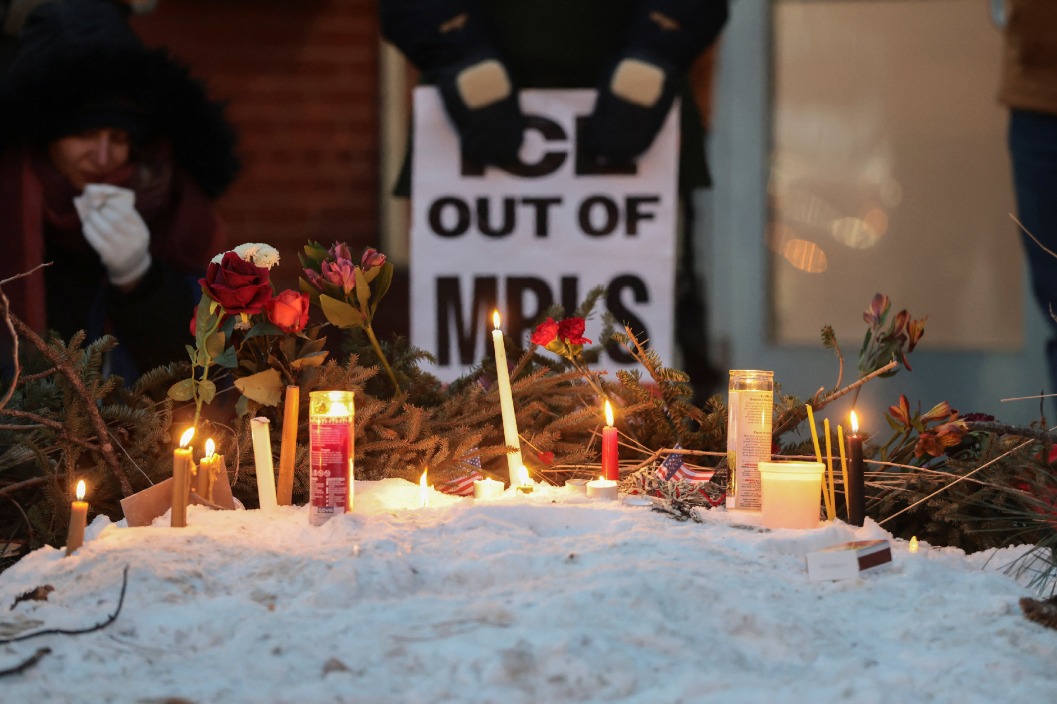Global pandemic deaths near 6m, WHO says


GENEVA-The number of COVID-19 deaths worldwide is close to 6 million, according to the latest data from the World Health Organization.
Globally, there have been 440,807,756 confirmed COVID-19 cases with 5,978,096 deaths reported to the WHO as of Friday, according to the international health watchdog's dashboard.
The Europe region topped the list with 181,275,264 confirmed cases, while the Americas ranked second with 147,655,931 confirmed cases. The United States, India and Brazil were the top three countries with the highest number of confirmed cases.
The WHO also reported that nearly 10.6 billion vaccine doses have been administered globally by Feb 27.
In southern Europe, Greece-like other tourism-dependent economies on the eurozone's Mediterranean fringe-is seeing signs of a much-needed recovery in visitor numbers in 2022 after two largely lost years. As in Spain, Portugal and Italy, the tourism sector is a huge employer and contributor to state revenues.
But across the region, the pandemic has changed the face of tourism. Hotels were already grappling with higher fuel bills and inflation.
The dislocation of labor markets caused by COVID-19 has left entrenched staffing shortages, and Italian tourist officials concede that pandemic-era holidaying-with its emphasis on hygiene, cleanliness and space-is a big challenge for its aging infrastructure.
A market for more modest, small-scale vacations is opening up. In Spain and Portugal, a reluctance among many tourists to travel far is accentuating the trend for stays in rural areas in tents, campers or motor homes.
Industry and government officials in Greece are forecasting revenues will reach 80 to 90 percent of the record seen in 2019, when 33 million tourists brought in 18 billion euros ($19.67 billion) in revenue, worth a fifth of national output, Reuters reported.
In Asia, the mental scars from last year's Delta-driven surge persist, but vaccination rates are among the factors that give people reasons to be optimistic.
While experts agree that opening up was the right move amid falling case numbers, they caution that optimism should be tempered with lessons from the past two years.
Gagandeep Kang, an infectious disease expert at the Christian Medical College in southern India, told The Associated Press that the government should start preparing now for the next medical emergency, "whether that is COVID-19 or something else".
New variants remain a concern, especially if the virus mutates into a more lethal version while retaining its infectiousness, she said.
Restrictions remain
Sri Lanka's pristine beaches are full again. Young people sway to music and devour spicy curries with friends. However, some restrictions remain on the island-masks are mandatory in public places. But the government hopes that foreign tourists will return soon, helping bolster the faltering economy.
The Indian government's focus is also on the economy. Apart from the loss of life, the pandemic also made millions poorer, including many who were among the most vulnerable. The stringent lockdown forced thousands of people to walk home to their villages from the cities where they worked. Those workers have now begun returning to cities, as activity picks up at factories and construction sites.
In Bangladesh, people are cautiously taking off their masks while dealing with the fallout of the pandemic. For many, the virus itself now feels like a minor problem compared with what other people are facing, such as inflation and job losses, said Mir Arshadul Hoque, a former student at the University of Dhaka.
"Overall, I think people have mentally distanced themselves from the coronavirus," he said.
But no amount of distancing can fully eradicate the difficult memories of the past two years: the overwhelmed hospitals, the overflowing cemeteries and exhausted doctors.
"The last two years were unbearable for us," said Habibul Bashar, a former captain of Bangladesh's cricket team. "We definitely don't want to go back to earlier times."
Agencies - Xinhua































